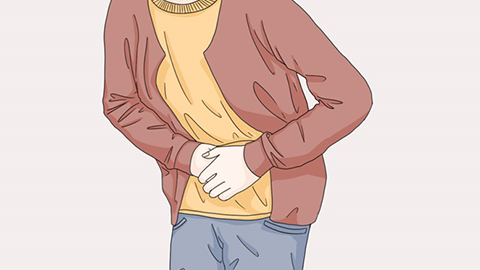What causes amenorrhea in a 16-year-old girl?
In general, amenorrhea in a 16-year-old girl may be caused by delayed puberty, excessive dieting for weight loss, polycystic ovary syndrome (PCOS), hypothyroidism, intrauterine adhesions, or other reasons. It is recommended to seek medical attention promptly, identify the underlying cause, and receive symptomatic treatment under a doctor's guidance. Specific analyses are as follows:

1. Delayed puberty: In some girls, puberty starts later, and the hypothalamic-pituitary-ovarian axis has not fully matured, leading to delayed menarche or amenorrhea after menstruation begins. Ensuring adequate nutrition, consuming sufficient protein and vitamins, maintaining regular sleep patterns, and avoiding late nights usually allow menstrual cycles to resume naturally as physical development progresses.
2. Excessive dieting for weight loss: Prolonged dieting causing rapid weight loss can disrupt hormone secretion and suppress ovulation, resulting in amenorrhea. Dieting should be stopped immediately, and a balanced diet restored, with increased intake of lean meat, eggs, milk, and similar foods. If necessary, dietary adjustments should be made under the guidance of a nutritionist. Menstrual function typically improves gradually as body weight recovers.
3. Polycystic ovary syndrome (PCOS): This condition is associated with endocrine disorders and manifests as amenorrhea, hirsutism, acne, and abnormal ovulation. Patients may follow medical advice to use medications such as dydrogesterone tablets, spironolactone tablets, and ethinylestradiol cyproterone acetate tablets to regulate hormone levels, while also managing body weight and engaging in regular exercise.
4. Hypothyroidism: Insufficient thyroid hormone secretion affects metabolism and endocrine function, leading to symptoms such as amenorrhea, fatigue, and cold intolerance. Patients need to take medications like levothyroxine sodium tablets, thyroid tablets, or Yikang capsules as prescribed to supplement thyroid hormones, with regular follow-up tests to adjust medication dosages accordingly.
5. Intrauterine adhesions: Often caused by induced abortion or intrauterine procedures, damage to the endometrium can lead to intrauterine adhesions and subsequent amenorrhea. Patients may undergo hysteroscopic adhesion separation surgery to restore normal uterine cavity structure. Postoperative medication should be taken as directed to prevent re-adhesion and promote endometrial repair.
In daily life, it is important to maintain healthy habits, avoid excessive fatigue and mental stress. Pay attention to genital hygiene, avoid unhygienic sexual practices and unnecessary intrauterine procedures. Engage in appropriate physical exercise to strengthen overall health and support stable endocrine function.




